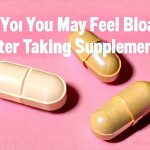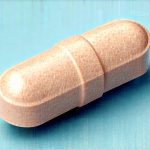Taking supplements has become increasingly popular as people seek ways to optimize their health and well-being. However, many individuals experience unpleasant side effects like upper abdominal nausea after taking these supplements. Often overlooked is the timing of supplement intake relative to meals – specifically, whether they’re consumed on an empty stomach. While some believe it maximizes absorption, this practice frequently leads to digestive distress for a significant portion of the population. Understanding why this happens requires delving into how our bodies digest and process nutrients, and how different supplements interact with that process. It’s not simply about what you take, but when you take it that determines whether it benefits or hinders your health goals.
The discomfort isn’t necessarily a sign of the supplement being “bad” – rather it frequently points to an incompatibility between the supplement’s properties and the digestive environment present on an empty stomach. Factors like stomach acidity, gastric emptying rates, and individual sensitivities all play crucial roles in determining whether a supplement is well-tolerated or causes adverse effects. Many supplements contain compounds that can irritate the stomach lining when there’s no food to buffer their impact, while others are simply better absorbed with food because of fat solubility or dependence on digestive enzymes released during meals. Therefore, understanding these interactions is key to optimizing supplement use and minimizing unwanted side effects like nausea. You might also find useful information regarding why nausea can be worse on an empty stomach.
The Role of Stomach Acidity & Gastric Emptying
The stomach’s environment is highly dynamic, changing significantly depending on whether it contains food. On an empty stomach, the concentration of hydrochloric acid (HCl) tends to be higher – a natural process for preparing to digest incoming food. However, certain supplements, especially those containing minerals or vitamins with acidic properties, can exacerbate this acidity leading to irritation and nausea. For example, Vitamin C in high doses is known to increase stomach acidity, potentially causing discomfort when taken without food.
Gastric emptying rate – the speed at which food (and supplements) move from the stomach to the small intestine – also plays a vital role. Food slows down gastric emptying, providing a longer window for nutrient absorption and diluting potentially irritating substances. On an empty stomach, supplements are rapidly propelled into the small intestine, increasing the likelihood of irritation or incomplete absorption if the body isn’t prepared. This rapid transit can overwhelm the digestive system’s capacity to process the supplement effectively, resulting in nausea and other gastrointestinal symptoms.
Furthermore, individuals with pre-existing conditions like acid reflux or ulcers are particularly susceptible to experiencing adverse effects from supplements taken on an empty stomach because their stomachs are already more sensitive. The increased acidity can worsen these conditions, leading to exacerbated symptoms beyond just nausea, such as heartburn or abdominal pain. It’s essential to consider individual digestive health when deciding how and when to take any supplement. Understanding GERD symptoms can also help you navigate this issue.
Supplement Types & Absorption Considerations
Not all supplements behave the same way in the digestive system. Some are better absorbed with food, while others require a specific environment for optimal uptake. Fat-soluble vitamins (A, D, E, and K) absolutely need dietary fat for absorption – taking them without food significantly reduces their bioavailability. Similarly, many minerals like iron and zinc compete for absorption pathways, and their uptake can be hindered on an empty stomach.
Conversely, certain supplements are often recommended to be taken on an empty stomach for better absorption. For example, some probiotic strains may survive the harsh acidic environment of the stomach more effectively when there’s no food present, allowing them to reach the intestines where they exert their beneficial effects. However, even with probiotics, individual tolerance varies greatly; some people still experience bloating or gas regardless of timing.
The formulation of the supplement itself also matters. Enteric-coated supplements are designed to bypass the stomach and dissolve in the small intestine, reducing the risk of irritation. However, they may not be suitable for everyone, as their absorption can be less predictable. Ultimately, understanding a specific supplement’s properties and how it interacts with your digestive system is crucial for minimizing side effects and maximizing its benefits. You might also want to investigate if multivitamins on an empty stomach trigger discomfort.
Identifying Your Personal Tolerance Levels
Determining whether you’re sensitive to supplements on an empty stomach often requires careful experimentation and self-observation. Start by taking the supplement with a meal – even a small one – and monitor how you feel. If you experience no discomfort, that’s a good sign. Then, cautiously try taking it on an empty stomach, paying close attention to any changes in your digestive system.
- Keep a Supplement Diary: Record which supplements you take, when you take them (with or without food), and any symptoms you experience. This will help identify patterns and pinpoint potential triggers.
- Start Low & Go Slow: Begin with the lowest recommended dose and gradually increase it if tolerated.
- Listen to Your Body: If you consistently experience nausea or other digestive issues after taking a supplement on an empty stomach, do not continue doing so.
Strategies for Minimizing Nausea
If you must take a supplement that causes nausea on an empty stomach, consider these strategies:
- Pair with a Small Snack: Even a small amount of food – like a few crackers or a spoonful of yogurt – can help buffer the stomach and reduce irritation.
- Hydrate Adequately: Drinking water alongside your supplement can aid in digestion and minimize discomfort.
- Consider Enteric-Coated Options: If available, choose supplements with enteric coatings to bypass the stomach and dissolve in the small intestine.
When to Consult a Healthcare Professional
While mild nausea is often manageable, it’s important to seek professional advice if:
- Nausea is severe or persistent.
- You experience other symptoms like vomiting, diarrhea, or abdominal pain.
- You have an underlying medical condition that may be contributing to the problem.
- You are taking multiple supplements and suspect one may be interacting negatively with another.
A healthcare professional can help identify the cause of your nausea and recommend appropriate strategies for managing it, including adjusting supplement timing, dosage, or formulation. Remember, individual responses to supplements vary greatly; what works for one person may not work for another. Prioritizing digestive comfort and listening to your body are essential for maximizing the benefits of supplementation while minimizing unwanted side effects. Additionally, understanding why restaurant food often feels heavier on the stomach can help you manage similar discomforts. You may also be interested in learning about how supplements can cause nausea. And lastly, strong coffee on an empty stomach may also contribute to digestive issues.


















